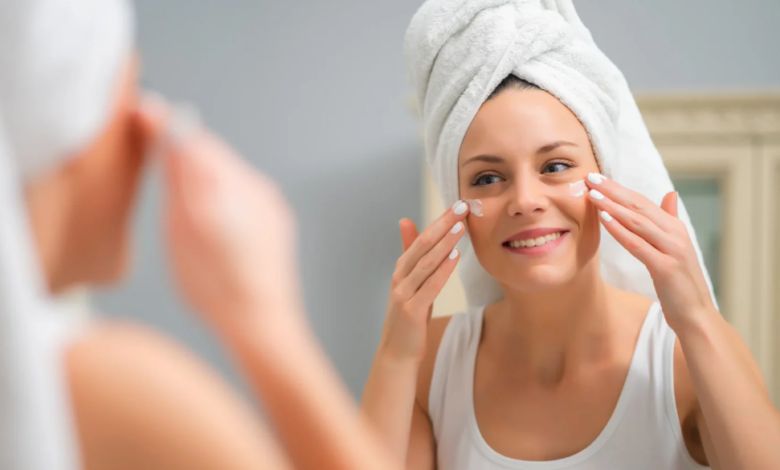Unlocking Radiance: How to Choose the Best Aging Skin Products for Long-Term Skin Health

Aging is a natural process—and so is the way your skin changes over time. Fine lines, loss of elasticity, dryness, and uneven tone are among the most common signs people notice as they age. While no product can turn back time entirely, the right aging skin products can dramatically improve your skin’s appearance, texture, and resilience.
With thousands of skincare products flooding the market, it’s easy to feel overwhelmed. From serums and retinols to anti-aging moisturizers and peptides, how do you know what actually works? This guide is designed to demystify the world of aging skin products, helping you make informed decisions about what your skin really needs.
Understanding How Skin Ages
Before diving into the shelves of creams and serums, it’s important to understand what happens to your skin as you age. These changes are the reason aging skin requires targeted care.
1. Loss of Collagen and Elastin
After the age of 25, collagen production begins to slow down. By the time you reach your 40s or 50s, your skin may appear thinner and less firm. Elastin, the protein responsible for skin’s ability to bounce back, also declines.
2. Reduced Oil Production
Sebaceous (oil) glands become less active, leading to drier skin that can look dull or flaky if not properly hydrated.
3. Slower Cell Turnover
Skin doesn’t renew itself as quickly, which can cause dead cells to build up on the surface. This results in a rough texture and uneven tone.
4. Increased Sensitivity
Aging skin may become more reactive to environmental stressors, including pollution, sun exposure, and even certain skincare ingredients.
These factors underline the need for aging skin products that provide both protective and reparative benefits.
See also: Healthy food delivery hong kong: Revolutionizing the Way We Eat in the City
What Makes an Effective Aging Skin Product?
Not all skincare products are created equal. The most effective aging skin products include ingredients that address the above biological changes while being gentle enough for long-term use.
Key Ingredients to Look For:
- Retinol and Retinoids
Known as gold-standard ingredients for reducing fine lines and stimulating collagen. Start with a low concentration to avoid irritation. - Hyaluronic Acid
A powerful humectant that attracts moisture, giving the skin a plumper, dewier look. - Peptides
These are amino acid chains that signal your skin to produce more collagen and elastin. - Vitamin C (Ascorbic Acid)
A potent antioxidant that brightens the skin, fades dark spots, and fights free radical damage. - Niacinamide (Vitamin B3)
Helps strengthen the skin barrier, reduce redness, and improve elasticity. - Ceramides
Lipids that maintain your skin’s natural barrier, crucial for hydration and protection. - SPF
Perhaps the most underrated yet most important part of any anti-aging routine. Daily sun protection is essential to prevent premature aging.
Products that combine two or more of these ingredients are generally more effective in supporting aging skin.
How to Build a Skincare Routine with Aging Skin Products
Developing a consistent skincare routine is just as important as choosing the right products. Here’s how you can build a routine that works for aging skin:
Morning Routine: Protection
- Gentle Cleanser – Use a non-stripping formula that maintains the skin’s natural barrier.
- Vitamin C Serum – Brightens and protects against environmental damage.
- Moisturizer with Peptides or Hyaluronic Acid – Locks in hydration and supports firmness.
- Broad-Spectrum SPF 30 or Higher – Absolutely essential, even on cloudy days.
Evening Routine: Repair
- Double Cleanse (if wearing makeup/SPF) – Start with an oil cleanser, then use a gentle foaming cleanser.
- Retinol or Retinoid Cream – Apply every other night initially, then increase frequency as tolerated.
- Hydrating Serum – Hyaluronic acid-based to restore moisture.
- Rich Moisturizer with Ceramides – Helps repair the skin barrier and promote overnight regeneration.
Weekly additions like exfoliants (AHA/BHA), masks, or facial oils can be included depending on skin needs.
Tailoring Products to Skin Type
Choosing aging skin products without considering your skin type can do more harm than good. Here’s how to tailor your routine:
- Dry Skin: Prioritize hydration. Look for rich creams with shea butter, hyaluronic acid, and ceramides.
- Oily or Combination Skin: Use lightweight, non-comedogenic formulations. Gel-based serums and oil-free moisturizers work well.
- Sensitive Skin: Avoid high concentrations of actives like retinol and opt for fragrance-free, calming products containing niacinamide and aloe vera.
Consulting with a dermatologist or licensed esthetician can help you fine-tune your routine based on individual concerns.
Lifestyle Habits That Enhance Product Results
Even the best aging skin products need support from healthy lifestyle habits. Consider the following:
- Stay Hydrated: Drinking enough water supports your skin’s elasticity and glow.
- Sleep Well: Aim for 7–8 hours a night to allow your skin time to repair.
- Eat Nutrient-Dense Foods: Antioxidants from fruits and vegetables combat skin-damaging free radicals.
- Manage Stress: Chronic stress can accelerate skin aging. Practices like yoga or meditation can help.
- Avoid Smoking and Limit Alcohol: These habits dehydrate the skin and contribute to premature wrinkling.
Combining proper skincare with these lifestyle practices ensures more visible and lasting results.
Looking Ahead: Innovations in Anti-Aging Skincare
The market for aging skin products continues to grow as technology and science evolve. New developments to watch for include:
- Stem Cell Extracts: Aiming to repair damaged skin cells and boost regeneration.
- Microbiome-Friendly Formulas: Products that support healthy skin flora for barrier protection.
- DNA-Based Skincare: Personalized products formulated based on genetic testing.
- Smart Devices and Apps: AI-based apps that analyze skin and recommend product routines.
These cutting-edge solutions signal a shift toward more personalized and effective skincare options.
Final Thoughts: Age Gracefully, Not Fearfully
Aging is not a problem to be fixed—it’s a natural transition to be embraced with grace and self-care. The right aging skin products won’t promise miracles, but they can greatly improve your skin’s health, vitality, and glow.
Your skin tells the story of your life. With consistent care, nourishing products, and a bit of self-love, you can ensure that story reflects confidence, strength, and beauty—at any age.




